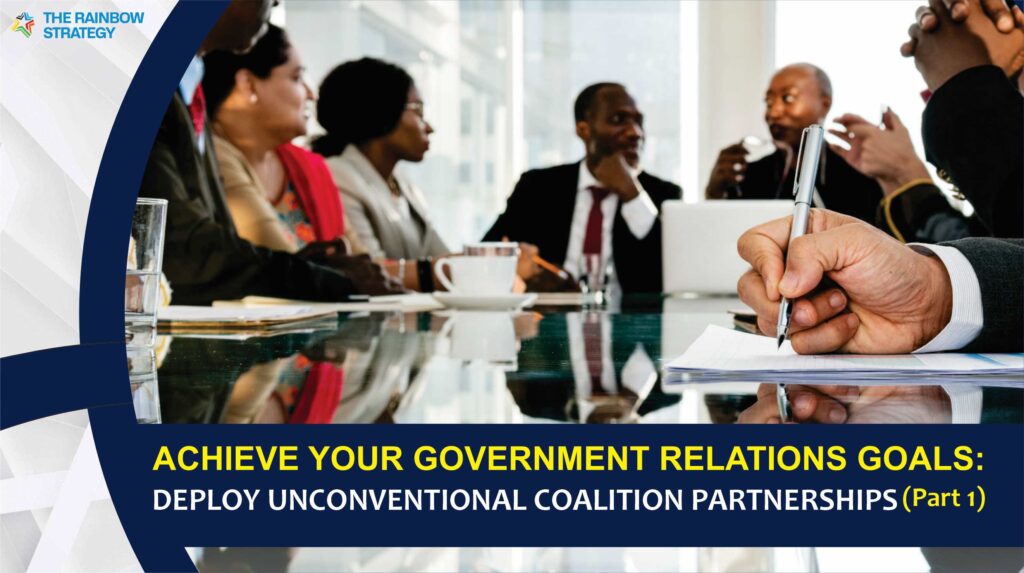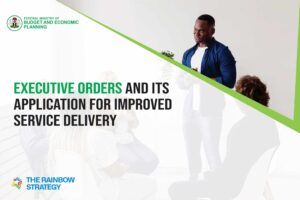Introduction
Being the practice of engaging and influencing public officials and policymakers to create favourable legislative, regulatory, and policy outcomes for an organisation or industry, government relations remain an important corporate strategy for organisational growth and survival.
This involves strategic communication, advocacy, and building relationships with key stakeholders in government to shape public policy in a way that aligns with an organisation’s business imperatives.
Public affairs practitioners often rely on conventional coalition partners to advance the goals of their organizations in government relations. These partnerships usually form between entities with closely aligned interests, objectives, and stakeholder bases. This is the norm. Conventional coalition partners bring certain benefits to government relations efforts.
Examples of Conventional Coalition Partners
For context, let’s provide some examples of conventional coalition partners. They range from industry associations usually made up of companies within the same industry, such as manufacturers forming coalitions through trade associations like Manufacturers Association of Nigeria (MAN), professional association of healthcare providers partnering through organisations like Nigeria Medical Association (NMA) to advocate for healthcare policies, labour unions like Nigerian Labour Congress (NLC) and Trade Union Congress (TUC), collaborating to push for workers rights and labour-friendly policies, non-governmental organisations (NGOs) like environmental NGOs like Eco-Watch Nigeria partnering with smaller environment groups to advocate for climate change policies, and business chambers and economic councils, such as Lagos Chamber of Commerce and Industries (LCCI) or Nigeria Economic Summit Group (NESG) where companies join as members to influence business-friendly policies.
The benefits include aligned interests and goals as partners often share closely aligned interests, making it easier to formulate unified messages and strategies, established networks meaning that partners have well-established networks and relationships with key stakeholders, including policymakers, industry leaders, and the media, credibility and authority where recognised industry or professional organisations lend credibility and authority to advocacy efforts, making it easier to gain support and influence policy decisions, resource sharing encourages pooling of resources, including financial, human, and informational assets, to mount more effective and sustained advocacy campaigns, and coordinated advocacy which ensure consistent messaging and a unified approach to engaging with policymakers and the public and finally policy expertise because industry associations, professional organisations, and NGOs bring specialised knowledge and policy expertise, helping to craft well-informed, persuasive arguments.
Unconventional Coalition Partnerships

Traditional alliances can be powerful, but the most unexpected partnerships sometimes yield the most significant results. This principle was at the heart of discussions at an insightful session of practitioners in private, public and development sectors hosted by The Rainbow Strategy, a public affairs and strategic communication firm based in Abuja.
The point was made that seemingly incompatible organisations can often form the most powerful and effective coalitions in government relations. In effect, unconventional coalitions do bring together seemingly incompatible organisations, united by a common goal.
Such partnerships often create a broader and more diverse support base, making it difficult for policymakers to ignore their collective voice. By combining resources, expertise, and networks, these coalitions can drive more impactful and sustainable changes in government policies.
The session acknowledged that forming unconventional coalitions has proven to be a strategic approach in advancing various government relations goals across Nigeria and Africa.
In parts 2 and 3, to be published over the next two weeks, The Rainbow Strategy will provide some notable examples where seemingly incompatible organisations have come together to achieve significant impacts and highlight strategies for identifying and leveraging unconventional coalition partners to achieve success in government relations successes.








